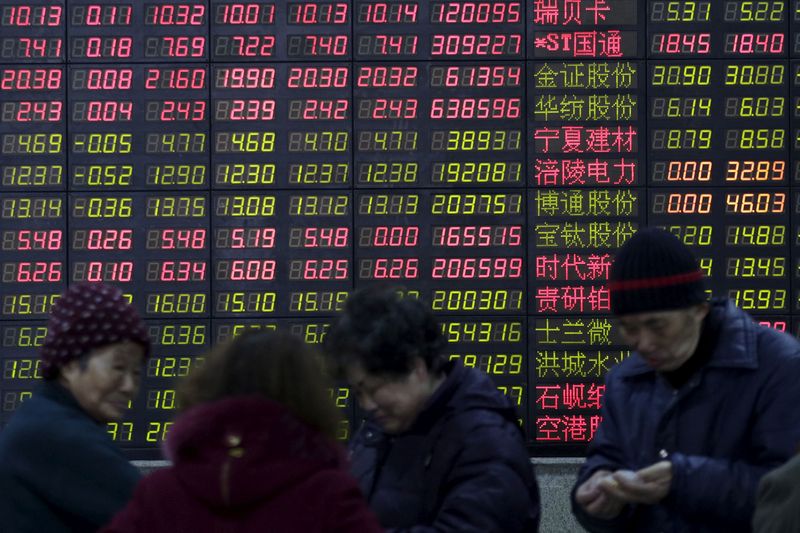SHANGHAI (Reuters) - Chinese investors are starting to shift money from bonds to stocks, betting on a robust recovery for riskier assets as the government's policy pivots to boost growth, the latest report on mutual funds showed.
Foreign money has also been flowing into China equities, sending the benchmark index up 7.4% in January, although analysts say overall foreign positioning is still conservative and more could come.
The shift in allocation towards riskier assets comes as China took measures to boost its economy, including dismantling its strict zero-COVID policy and supporting the property sector in late 2022.
China's stock benchmark is up nearly 20% from an October low, while the five-year Treasury has surged more than 25 basis points as bond prices slumped.
"We are at the initial stage of a recovery," said Mo Zhaoheng, investment director at Guangzhou Hanma Investment Management. "It would benefit stocks, while troubling fixed income assets."
Mo said he had added more stock positions in November and December, when many investors shifted money out of bonds on fear that the bond bull market may be over.
The assets under management of Chinese equity mutual funds rose 8.7% to 2.47 trillion yuan ($366.38 billion) in the fourth quarter, after dropping 7.3% a quarter earlier, while that of bond funds fell 6.9% to 7.4 trillion yuan ($1.1 trillion) after rising for six straight quarters, according to TX Investment Consulting.
Goldman Sachs (NYSE:GS) analysts said overseas investor positioning had not fully caught up with the improving sentiment and fundamentals, suggesting both international and domestic investors will continue to buy stocks.
New launches of equity funds in the fourth quarter also remained subdued, Lei Meng, China equities strategist at UBS Securities said, while noting that such issuance of funds usually lags stock market performance for about three months.
As Chinese shares bottomed out in November, Meng expected mutual funds' issuance to step up in February.
"It will bring a steady stream of incremental funds to fuel the market," said Yang Delong, chief economist at First Seafront Fund Management.
($1 = 6.7417 Chinese yuan)
